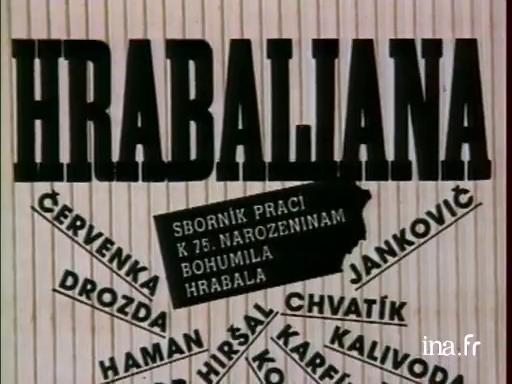Bohumil Hrabal

Information
The Plasticien Jiri Kolar talks about his friend, the Czech writer Bohumil Hrabal: his beginning, when Kolar had helped Hrabal to publish his first collection, his passage from poetry to prose, their common taste for the painter Bruegel and an analysis of the Hrabal style.
Context
Bohumil Hrabal was born in Brno in 1914 and died in Prague in 1997. After having worked in several professions, he published his first collection of short stories in 1963, at the age of 49; it was immediately successful. But after the reinforcement of the Czechoslovakian communist regime in 1968, after the Prague Spring's repression, Hrabal was forbidden from publishing, accused of being "disgusting and pornographic".
Some of his books, written during this time, nevertheless circulated underground, published in "samizdat" (literally "self-publishing", a small-scale and illegal reproduction system). 1976 marked a turning point: that year, a petition circulated in intellectual circles, Charter 77, which denounced the "normalisation" of the regime after 1968. In response, the communists in power produced an Anti-Charter. Bohumil Hrabal signed it, which led to his graceful return: his works were once again officially published. During the following years, he published and wrote a great deal: I Served the King of England (samizdat 1971, 1982), Too Loud a Solitude (1976), Les Noces dans la Maison (1987).
Hrabal's environment is characterised by irony, dark humour, pessimism and grotesqueness, in a style that combines slang with extremely refined language. Considered by many to be, along with Milan Kundera, the main Czech writer of the 2nd half of the XXth century, Bohumil Hrabal always refused to emigrate. In the 1980s he was censored once again, and after falling ill, he committed suicide in 1997, jumping out of the window of the hospital where he was being treated.




